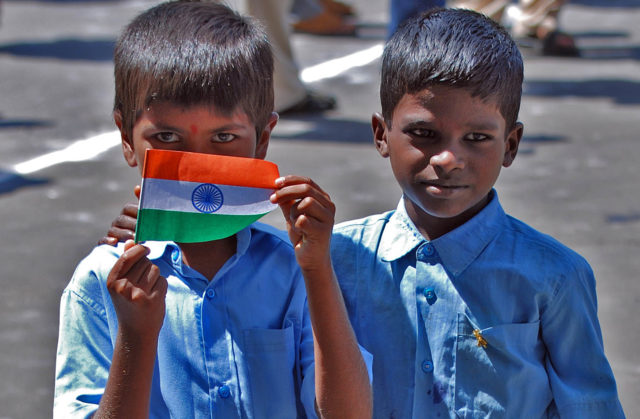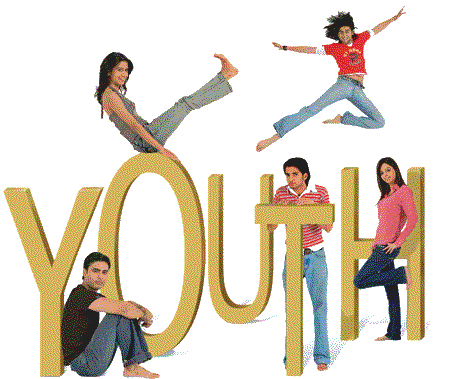Patriotism: A seed to be sown in childhood and watered with lives of national heros
All of a sudden…these days, patriotism is the talk of the town or rather, the nation. The media channels are busy discussing the categorization of a national versus an anti-national; and people are trying to formulate a newer definition of patriotism every day. But patriotism has only one definition and that is, “an extreme possessiveness for the motherland,” which propagates the one on our borders – our brave-hearted soldiers – to sacrifice their lives, as they battle the elements to secure every inch of our great big nation.
Here, it becomes necessary to provide the background that was responsible for the skyrocketing of the topic…to the abyss of the space piercing the atmospheric layer. On February 9th this year, a group of students in JNU (the “prestigious” Jawaharlal Nehru University) located in the national capital, raised slogans against India in favour of convicted terrorists. These students — an explosive combination of leftists and separatists (that forever pose a hindrance to the growth of the country), raised anti-India slogans, which invoked the very destruction of our motherland, India. I shudder to think if this is the way we are going to repay the sacrifices of our soldiers.
Question, of course, arises as to how one can even think of destroying his/her own country…and after much thought and deliberation, I truly feel that the answer lies in “childhood” — that is, the socialization process through which a child learns about life.

Image source : Flickr /Prabhu B Doss
Firstly, when we’re young, we start to learn about the country from the history textbooks in our schools, where we are also made to stand while the national anthem is being sung. History is the only subject which gives us a chance to peep back in time and figure out what’s the background of our country, its history and culture… and what it all took to become what we are today.
Secondly, the role of the family comes into play, where a child listens to heroic tales of the freedom fighters from his/her family members, who they trust the most. At every step, a child lets his vivid imagination run wild as he looks up to these legendary role models; and how each one of them might have lived…and died…for the country.
Thirdly, as now, there are no fictional characters like “Peter Gomes” present on the television screen, who are shown torturing Indians, as it was in the popular TV serial of the past -“Yug” – almost two decades back, which forced kids to ask questions as to why he acted in the way he did. And once the parents answered them, they would hate Gomes to their core and start loving those fellow Indian characters shown on TV fighting for the country.
In the present scenario, where within the history textbooks, the revolt of 1857 is summed up in a couple of pages, the Indian navy’s revolt that took place immediately before Independence is summarized in a paragraph, and Bhagat Singh’s life is described in a few lines, it is not justifiable anymore to expect textbooks to instill patriotism amongst the pupils. Of course, the icing on the cake is that there are no patriotic TV serials on the television screen.
However, there is much that can be done even now, which brings the role of family and teachers to the forefront so that they don’t leave their students and wards pining for more. For example: A teacher, prior to singing the national anthem, can say a few lines about the country imparting the conscience that to stand fast during national anthem is an important part of paying respect to the nation. Along with the national anthem, kids must be made familiar with the pristine importance of a piece of cloth which get transformed into the insignia of the motherland as soon as it gets coloured with saffron, white and green, which is our tricolour.
Likewise, they can supplement their lectures with how revolutionaries sacrificed their lives and the price we paid for our precious freedom. During history lessons, they can even tell students about war stories and the great heroes that made this country great.
Similarly, the family can narrate stories of independence and the golden history of the nation to instill feeling of pride in kids. Secondly, in independent India, a major motivating factor for all kids is our defence forces. Therefore, it is imperative to teach kids to respect the olive green of the Indian Army…the radiant white of the Air Force…and…the pristine blue of the Indian Navy, who cumulatively have fought four and a half battles (the ‘half’ is a reference to the attack on Kashmir by tribal forces immediately after Independence.)
Hence, it is also important to teach our kids about the heroism of Major Shaitan Singh who fought with the Chinese amid scarce resources, the valour of Captain Mahendra Nath Mulla of INS Khukhri who choose to die with his sinking frigate, and the supreme sacrifice of company quarter master Abdul Hameed who startled Pakistanis by destroying their several tanks with his jeep mounted recoiless gun. For they are source of inspiration in independent India are also the soldiers who have sacrificed their life fighting against enemy of the state, foreign or within. As the future generation shall must know that India is a land of topchi (present day’s gunner) Kale Khan who refused to bombard on the Britishers during the revolt of 1857 just because he was worried that cannon balls fired by him could destroy a temple behind which the foreign forces were standing. (reference in documents present with national archives)
The future generation of our country must be insured with the treasure of the biography of great leaders, revolutionaries and our defence personnel, for there will come a time when the veterans who have witnessed 1947 would be no longer with us…and all that will remain would be incomplete stories…of supreme sacrifice which must continue to get passed on to generations so that they remain forever proud of being an Indian and they never get have to face a political debate for defining patriotism….































Karmaker, I had no idea that family life had such a major effect on a child’s patriotism. I want to teach my kids about the need to love their country and support it. I think that it’s one of the best ways to help them to become law abiding citizens.